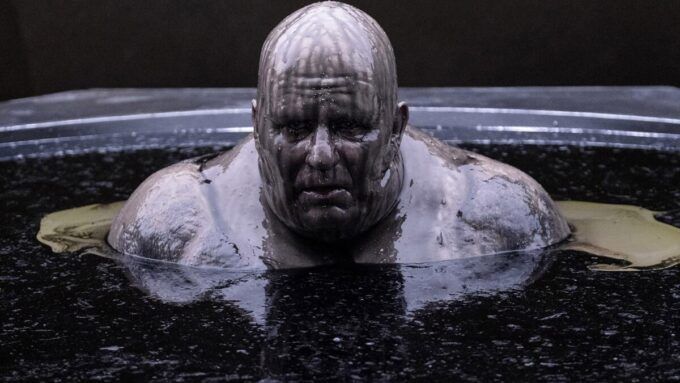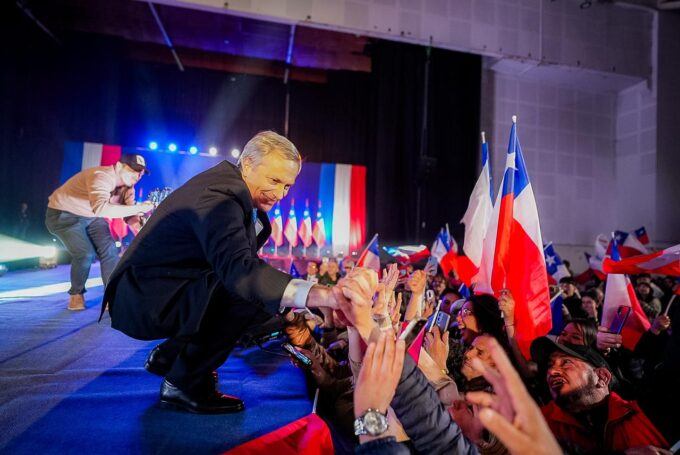
Post-Pandemic Post-Trump
Published on http://www.counterpunch.org
“You can’t con people, at least not for long. You can create excitement, you can do wonderful promotion and get all kinds of press, and you can throw in a little hyperbole. But if you don’t deliver the goods, people will eventually catch on.”
– President Trump tweet
In William Blake’s view prophesy was no more than projecting into the future consequences of what we were doing in the present. If we kept on doing what we were doing, we could predict with some reliability what might happen. Caveat here: if no chance events disrupted that causal chain, such as a hurricane, or a stock market crash, or a pandemic, or a 9/11. There are also conditions presently at hand — global warming, for one — which we know about and yet the clock of its consequences remains subject to chance, like the stock market itself.
Given what we all know, whether President Trump is our champion or our nemesis, he will deal with pandemic personally, as he does State and foreign affairs, and, indeed, the executive office, the U.S. Constitution, medical science, the U.S. intelligence community, investigative journalism, and Congress. Regardless of the way he deals with the current pandemic or what his fate may be in the November election, it remains difficult to see us all “catching on” and him out of our future. Right now, some 45% of the population are loyal to him regardless of what “Fake News” represents, and the entire Republican Party bends to his will, in fear I suppose of being pilloried by that 45% if they oppose him. We can safely predict that what we learn from Donald J. Trump’s presidency will be a deeply divided learning.
Given what we know about our seriously economic, social and politically divided society, whether you believe this is a matter of no consequence to our growing prosperity, or as Bernie Sanders orates, a foundationally lethal matter, we can expect that what we learn from this pandemic and how we re-organize ourselves because of it will also be so divided.
To an extent well documented in our “Fake News,”, Trump is an accelerant to our collapsed social cohesiveness, our very less than perfect union. From an alternate perspective, which unlike facts we can have, the President is bravely fighting despotism of all kinds, the way any rebel hero does. However, whether or not the President as a rebel hero is the phenomenal reality 45% of the population live in, he has done his best to confound all challenges to his own will by exploiting justified anger, frustration, and suspicion of what Joe Biden thoughtlessly calls a return to normalcy. That supposed past “normalcy” was what, through Republican and Democratic administrations, created the conditions that brought Trump to power.
Biden’s confusion, not at all shared by the perceptive Bernie Sanders, is a different sort of confusion than what Trump has unleashed in the land. Trump’s loyal supporters would claim to not be confused and confounded because it is in the nature of blind loyalty like religious belief not to be confused. Nevertheless, that blind loyalty does not eliminate the conflict and confusion that spreads across the country.
The American mass psyche is not free of conflict and confusion because the President lays it all at the doorstep of the “Fake News Media.” You can’t underestimate the damage Trump has been able to do to the shared ways in which we know the world. It has never been the case that what we say about the world can be shown by any universal rule of judgment that this is what is really going on in the world. Our words are not reality. But in the West, we have long accepted a consensual validation of what reality and truth are. We have rarely succumbed to the presumptions of Humpty Dumpty master power: “Words mean what I choose them to mean.” That absurdity comes out of the mouth of not only the President but a countless number on narcissist media.
Trump did not by himself deconstruct meaning but rather he found a nationwide skepticism regarding authorized meanings that benefited few and destroyed many. The country was ready to disrespect all authority, including science. By pointing to various institutions and people as suspect sources of “truth,” Trump created a pandemonium, one which ill services our pandemic fight. His messaging medium, Twitter, is not an innocent delivery system here because by devolving all political discourse to the mosh pit of Twitter and the like, of anonymous opinionating that scrambles the insightful with the passions of the gut, the President submerged dialectic in mud. And on this battlefield, he has thus far not lost.
Loyalty to Trump abiding even when challenged by facts is only part of the picture. A man who has, as of January 2020, given us, mostly via Twitter, 16,241 false or misleading representations has not escaped our longstanding Enlightenment empirical and rational review. In short, one autocrat in the first quarter of the 21st Century cannot terminate that tradition.
The best he can hope for is to sow enough confusion to make his alternatives to reality and truth answer the deep psychological needs of some 80% of the population who had indeed been coalescing as a permanent precariat. All Trump had to do was throw them a lifeline, even though it led to a man who, if past actions reveal what we can expect, would surely let them all drown to save his own proud ego. But it is precisely that kind of revelation that is now confounded to the point that some 45% of Americans see Trump fighting against the odds, tough, rock jawed like Churchill, and winning, a true exemplar of the American Dream.
We cannot picture a future unless we acknowledge that these opposing phenomenal views exist, with no sign of their disappearance.
Donald J. Trump is now exactly where disciple Nathaniel Brand said of Ayn Rand, Trump here substituted: “Donald J. Trump is the greatest human being who has ever lived . . . the supreme arbiter in any issue pertaining to what is rational, moral of appropriate to man’s life on earth.” Whether he wins a second term as president or whether he doesn’t and fights, along with his followers, against a loss engineered by the Deep State, we can now propose a very possible future scenario in which he will remain a determining force.
What Trump had done to earn this holy status is find a way to make himself a savior to a notable portion of voters that the Republic Party was losing or never had. There was not a winning number of Republican voters who enjoyed the status quo that had eroded the middle class and brought the working class to their knees. None of that misery and plight bothered or burdened those living on dividends and compound interest or on algorithm profits. But it brought many to a revolt level. Trump netted them. He did so not by describing the conditions that had set them up for extinction. He had neither the ability nor the interest in doing so, as Bernie Sanders has done. But Trump has no interest in drawing back the curtain on his own “Fortunate One” life and those of others feeding well at the public trough. He casts his nets low, drawing people who hate other people, caricaturizing those others as not people, but animals.
The rich calculate that the poor are poor through their own fault. It’s a salving psychology, even if you have increased your wealth 24 billion thanks to the pandemic. It’s also Ayn Rand/Hakluyt creed, so deeply embedded since Reagan that the poor themselves blame themselves for being poor. Market efficiency gives us the best of all possible worlds so where would we turn but to ourselves as agents of our own failures and poverty?
However, as wealth accumulated in fewer and fewer hands, the “Blame Yourself” therapy loses hold. Three individuals with as much wealth as 50% of the population! How do you blame yourself for that? Everyone Trump has drawn to him does not lash himself for his collapsed life’s status. Trump’s clever chess move was to give the anger and frustrated hate targets: people and institutions. Divisiveness and not diversity, hostility and not Wokeness.
But clearly, our Rand/Hakluyt creed had already divided us. We were already social distancing before Covid-19. Luxurious gated communities lie on the periphery of distressed Detroit. a social distancing repeated all over the country. CEO’s and those living on stock returns will remain cloistered in penthouses and mansions when others take the risks of returning to work out of necessity. The distancing and distaining of the ungentrified by the gentrified had the acrimonious political and social results you would expect without Trump’s exploiting it. It all pre-dates Trump.
The rich are in their own cockfights but when it comes to elections, they all vote their portfolio. The poor, however, can hate the poor, not because they’re poor but for irrational, prejudicial feelings. And because haters are not divided by class, Trump did what the Republican Party couldn’t do: he pulled the precariat to his side. Someone in the precariat, who needs all the help government can give, may therefore stand behind Trump because they respond to his dog whistles against gays, Muslims, socialists, feminists, blacks, browns, abortionists, Asians, and the Liberal elites. He doesn’t dog whistle as much as boldly vituperate, slander, mock and humiliate. To those who cheer at his rallies, he is the Jesus lashing the money lenders out of the Temple.
Amid this pandemic, we see signs of distrust, antipathy, and fear. A whole array of low passions were ours before Trump and before the pandemic.
Why would we be outraged that someone bought up masks or hand cleansers in huge volume in the hope of reselling them at whatever the demand will pay? Isn’t that our economics, supply and demand, let Markets Rule?
Why would you be surprised at the first sign of quarantine that your neighbor emptied the shelves of toilet paper, or that stores had to set quota to keep that selfishness controlled? Aren’t we in a zero-sum game? I win, you lose. Isn’t Trump someone’s hero because he’s a Winner with loads of money, lives in a gilded Mar-a-Lago?
Why would you share your winnings with losers when the game and the deal isn’t sharing with others but getting it all yourself?
What this pandemic has done is shown us up close that we need to hoard to protect our family. Other people will remain a source of infection up until there’s a vaccine and then we still won’t burn with communitarian love because vaccines are part of the Deep State’s intrusion into our lives.
Given these conditions, why would we expect a turn from self-interest, hyped as enlightened, to a Denmark sharing fest?
Is Bernie’s social democracy what pandemic leads us to? Does the fact that black and brown lives were fodder for this virus in such numbers mean that our odious, clinging racism is over? Will we fight for the wages and conditions of employment for all those “servers” that kept us fed and watered during this crisis? Will President Trump feast on a whole new set of people and ideas that he can ridicule and target as the causes of this pandemic?
What sort of fight in the end did we make for that voiceless portion of the population, that impoverished portion that were poor because they shirked work, that portion that could be expended without hurting your stock portfolio, those homeless and destitute who harshed the sweet mellow of our gentrified lives?
If we adopted Thomas Kuhn’s view of paradigm jumps that occur without causal bridges from one to the other, which he observed in the movement of science, we very well could be at a post-pandemic/post-Trump time into what we cannot now foresee.
But we cannot presume that an embedded hierarchy of forces and growing fear and hatreds that have been determining American culture since Reagan will abruptly disappear.
For one thing, our President has been too outrageous in trampling both formal and informal bulwarks to our electoral democracy for us to ignore their impact. I would like to say that this President’s attacks on Congressional oversight, overriding by his own self-proclaimed stable genius findings of the intelligence community and the Fourth Estate, and his presumptions of a royal power of decree would be sufficient to destroy any reach into the future he would have. I would like to bet that we would remember how we have been wounded and move toward recuperation.
Our own history shows us, however, that we neither forgive nor amend but forget. And this terrain of national amnesia obstructs legislative regeneration while at the same time remaining a feasting ground for the rapacious pursuit of profit, which never forgets its goal.
The aspects and components of cultural shifts and transitions from past to present to future are available to us but may not be noted because historical memory in our capitalist society is always yesterday’s stock returns, yesterday’s horse race. The rapid development of cybertech and the mercurial nature of our social media both extinguish the past, magnetize our gaze into NOW! and make all the past amusingly obsolete. Ironically, that mercurial nature of the Twitter world that keeps President Trump on the stage of the present moment may be precisely what hooks him from that same stage into oblivion.
We have a mixed record of learning from mistakes, wars, crises, and the autocratic instincts of the presidency.
The Great Depression produced humanitarian changes for all those looted by the financialized capitalism of the `20’s. Changes made after WWII did the same. Viet-nam left us with a legacy of failure and a subsequent psychotic urge by some to redeem that loss in Iraq. The failure of the Senate to convict President Trump of impeachment charges brought by the House tells us that nothing was learned by Nixon’s autocratic use of executive power. And neither in our post-Katrina nor post- Great Recession of 2007 world have we amended our wealth divide, restrained the wild west play of our financialized capitalism, nor recognized that our economic system is as enslaving to people of color as was the ante-bellum South’s and that such economic abandonment is our chosen gentrified way of lynching.
This seems so extreme a statement but what can I conclude when in my own state, Michigan, 40% of Covid-19 deaths are of blacks, who make up only 12% of the state’s population? And such results, still coming in, are true in New York, Illinois, North Carolina and South Carolina. Like the pandemic itself, this could have been foreseen. Have all the images of blacks on roof tops waiting to be rescued during Katrina buried in our endless Facebook scroll of our personalized realities? Clearly there are opposing forces to any recuperation of even the most outrageous sins of our past. Our recuperation now seems to be covered by simply being “woke.”
We can follow all forces and their hierarchy into our post-Trump/post-pandemic world if our attentions are not forced elsewhere or we drift into a forgetting that we choose to call “mindfulness.” The pandemic of our own economics eats up the planet, our lives but first our memories. These are not conditions that we need to take into a post-Trump/post-pandemic future.












